Switching To A Sulfate-Free Shampoo? All You Need To Know
Find out what the hype about going sulfate-free is all about and how it can help your hair.
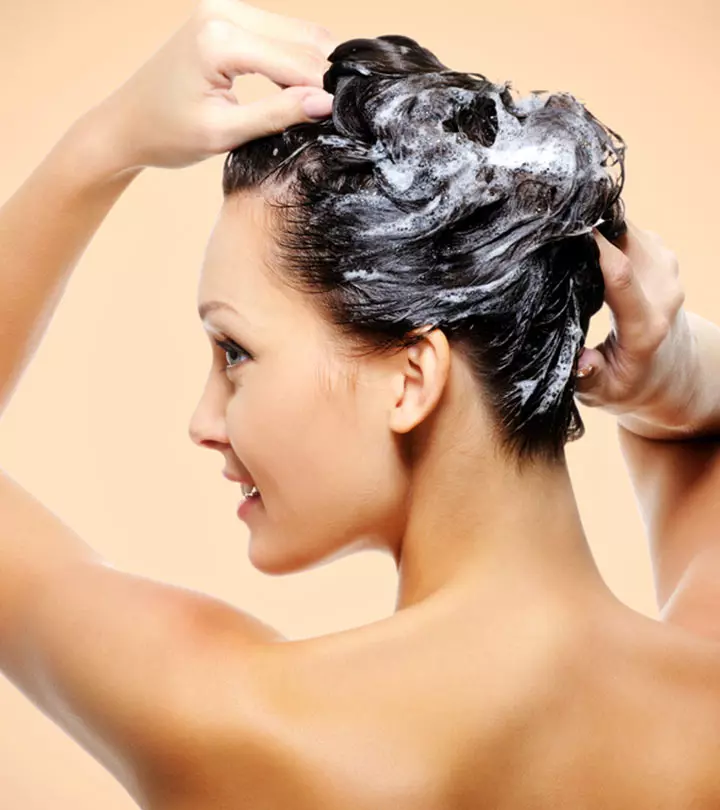
Image: Shutterstock
Whenever anyone looks at you, the first thing that they notice is your hair. Beautiful hair adds to the appeal of your face and stands as a crown of beauty in its own right. However, do you ever wonder if you are taking proper care of your hair?

Most of the hair care products contain different types of chemicals, including sulfates, that may be harmful to our hair and scalp. But, what are sulfates? And, how do you know if a shampoo is sulfate-free? Don’t worry, we have got you covered. In this article, we will delve into the world of sulfates and their effects on your hair. We will also provide you with valuable information on how to identify the best sulfate-free shampoo options available. So, keep reading to learn more about the importance of sulfate-free hair care and how it can benefit the health and beauty of your precious locks.
In This Article
What Does Sulfate Shampoo Mean?
Sulfates are salts formed from the reaction of sulfuric acid with other chemicals.
They are surfactants, meaning they have detergent-like properties and act as foaming agents and super cleaning agents (1).
The hair care industry uses sulfates, mostly in the form of Sodium Lauryl Sulfate (SLS) and Sodium Laureth Sulfate (SLES), in shampoo to help remove dirt and oil from your hair and scalp and clean them thoroughly.
Although it is a standard shampoo ingredient, some experts have warned about the excessive use of sulfates. Their excessive use may cause irritation and damage to the hair follicles (2).
So, what does sulfate shampoo do to your hair? Find out in the next section.
Key Takeaways
- Sulfate-based shampoos are good at cleaning dirt and grime. However, they may strip your hair of natural oils and dry it.
- A sulfate-free shampoo helps lock in your natural hair moisture, keeping your hair soft and shiny. Organic, sulfate-free shampoos also help protect your hair from harmful chemicals.
- People with skin and scalp conditions like rosacea, contact dermatitis, or eczema may get some relief by opting for clean, organic, sulfate-free shampoos.
Understanding The Role of Sulfate Shampoo For Hair
Your scalp secretes natural oils known as sebum that are vital for the health of your hair. They protect the keratin in your hair and the hair follicles from damage. The sebum forms a waterproof layer on the surface of the hair strands to prevent damage to keratin (3).
Sulfate shampoos help remove dead cells, free oil, and any other dirt on the hair, and offer gentle cleansing.
However, according to a study, the downside is that sulfates in shampoo can also remove the essential oils from the hair and damage the hair protein (4).
Sulfate shampoo creates a lather that is responsible for breaking free the surface tension of water. It also easily mixes with oils. Thus, while rinsing your hair, it can wash off the dirt, dead cells, and sebum effectively. When used in moderation, sulfates can thoroughly cleanse hair without causing significant damage.
However, it can also damage your hair’s keratin. It increases hair porosity and decreases hair moisture, which makes your hair dry and brittle.
Hence, the current industry is focusing more attention on producing shampoo that is free from sulfates.
So, what are the advantages of going sulfate-free? Find out below!
Advantages Of Sulfate-Free Hair Shampoo
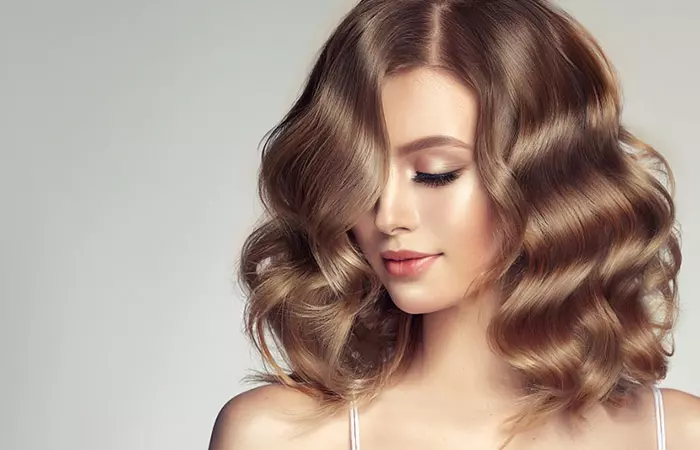
If you decide to use a shampoo that is free from sulfates, you can experience the following benefits:
- Shampoo that is free from sulfates can help to lock in the natural moisture. It helps to maintain the original shine and softness of your hair. Such shampoos can also help you gain extra hair moisture in due time.
- It takes a lot of time and effort to color your hair. To preserve it for longer, you can switch to a shampoo that is sulfate-free since the aggressive sulfates can fade your hair color quickly.
- If you are using a shampoo that is free from sulfates, you no longer have to worry about the scalp irritation that plagued your life while using the previous shampoo. Additionally, you will no longer need to endure the burning sensation if the shampoo accidentally enters your eyes.
- Shampoos with sulfate-free ingredients are mostly organic. Hence, it also helps cut down on harmful chemicals.
- These shampoos can also be a great choice for individuals with sensitive scalp or hair concerns like dry, brittle hair or damaged, colored tresses.
The American Academy of Dermatology advisory states that if you have skin and scalp problems like rosacea, contact dermatitisi A skin rash or allergic reaction to a substance limited to the specific area of the skin in contact with it. , and eczemai A persistent condition that flares sporadically, leaving behind dry, itchy skin and weakened skin barrier function. , you should switch to a shampoo that is free from sulfates.
 Quick Tip
Quick TipYou must be wondering if a sulfate-free shampoo is for everyone. Read on to find out.
Who Can Use A Sulfate-Free Shampoo?
When choosing from the different types of shampoo available on the market, it is essential to opt for options that are generally gentler and better suited for your hair. If you have issues like rosacea, contact dermatitis, eczema, or general scalp itchiness and dryness, it is time to go sulfate-free.
There is no such restriction on who can use these shampoos, but it is best to consult a doctor for the best results and to avoid any adverse effects.
You also need to be able to differentiate between sulfate-free and sulfate-based shampoos. Here is how you can do that.
How To Know If A Shampoo Is Sulfate-Free?

Opting for the right shampoo for your hair type is highly important. Since you know the benefits of sulfate-free shampoo, you may be wondering if your current shampoo is one of them.
If you find either of the following ingredients in the ingredient list of a shampoo, you can be sure that it is not sulfate-free:
- Sodium Laureth Sulfate (SLES)
- Sodium Lauryl Sulfate (SLS)
- Parabens
- Triethanolamine
Now, let us now look into how sulfates damage our hair.
How Do Sulfates Damage Your Hair?
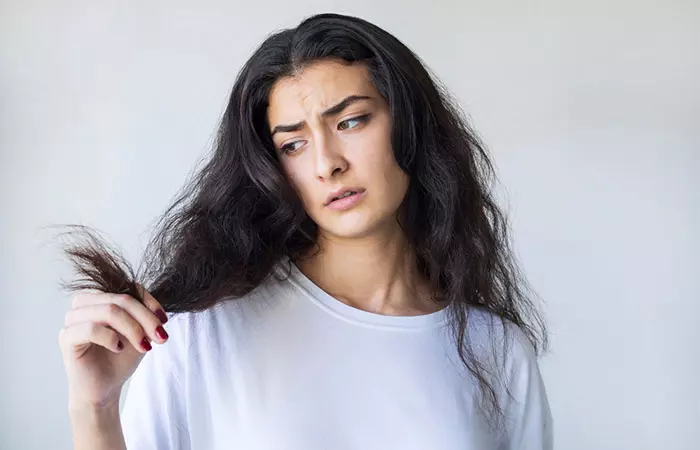
In the past, people thought that sulfates were carcinogenic. Thankfully, this has been proven false (5).
However, people are still wary of the level of sulfates in personal care products. This is because they have the potential to make your hair dry and brittle, resulting in many hair problems. Hence, you will only find products with a low concentration of sulfates, which can cause minimal damage to your hair.
As you grow older, sulfates begin to damage your hair even more. During menopause, you may experience hair fall, melanin reduction, thin follicles, and low protein and vitamins in the hair (6). Due to these factors, the hair becomes weak, and sulfate shampoo can damage the cuticle cells further. It exposes the inner hair cortexi Section between the hair cuticle and the medulla, it is the thickest layer of hair containing the bulk of the pigment that gives the hair its hue. to external forces of moisture and temperature, resulting in breakage, split ends, and frizz.
Make sure to keep a tab on your hair health, decide if you need to make the switch to a sulfate-free shampoo, and enjoy your hair’s natural shine and softness!
 Did You Know?
Did You Know?Additionally, it is important to know the best way to use a sulfate-free shampoo. Find out how in the next section.
How To Use A Sulfate-Free Shampoo
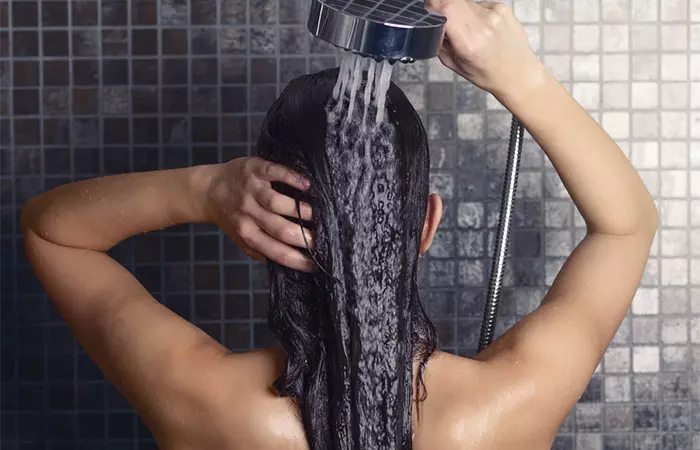
- To clean your hair with a sulfate-free shampoo, make sure to soak your hair and scalp in water thoroughly.
- Now, apply the sulfate-free shampoo to your scalp.
- Add more water to spread the shampoo easily and lather it up a bit.
- Massage your scalp.
- Now, rinse off the shampoo with cool water.
- You may repeat this process a second time if you feel your hair is extra greasy.
You can try this regimen whenever you want to wash your hair with a sulfate-free shampoo. However, the biggest question is, how often should you use sulfate-free shampoo? Find out more in the next section.
Can You Use Sulfate-free Shampoo Daily To Wash Hair?
You need not wash your hair every day unless it is very oily. However, unlike sulfate shampoos, which make your hair brittle, a sulfate-free shampoo can be used daily, along with a conditioner to moisturize your hair.
However, does your hair feel greasy after using a sulfate-free shampoo? Find out why below.
Why Does Hair Feel Greasy After Using Sulfate-Free Shampoo?
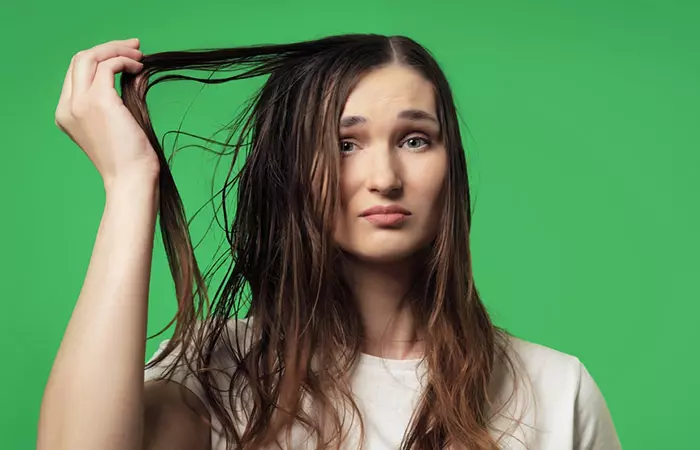
Your hair may turn greasy either due to your hair type or the constituents of the shampoo.
Abandoning the harsh SLS-based shampoos for a sulfate-free decyl glucoside or coco glucoside shampoo means lesser cleaning action. However, these shampoos may not be able to develop lather quickly and build up in an area.
To get around this problem, you need to add more effort and remove the build-up.
Are you wondering how sulfate-free shampoo reacts with colored hair? Read on!
Why Is Sulfate-Free Shampoo Better For Colored Hair?
Dermatologists recommend you to switch to a shampoo that is sulfate-free after dyeing or bleaching your hair. It is because, after hair color treatment, your hair becomes more vulnerable and requires more moisture. Using a sulfate-based shampoo can make it dry and brittle, which may cause various hair problems, such as split ends, hair loss, and color fading.
It is best to know about the pros and cons of sulfate-free shampoo before making a decision. Keeping that in mind, here are the problems a sulfate-free shampoo could cause.
The Problem With Sulfate-Free Shampoos
As consumers are slowly educating themselves about the harmful effects of sulfates, the trend of using sulfate-free shampoo is gaining traction. However, just because a shampoo is free from sulfates does not mean that it is better or worth buying.
Many manufacturers market their product as a sulfate-free to keep up with the trend, but it could be false as well.
Some manufacturers are just trying to attain the tag of ‘sulfate-free’ by selling you shampoo with olefin sulfonate, which is closely related to the sulfate family. The use of these shampoos can be equally harmful to your hair, if not more potent.
A blogger recalls how trying sulfate-free shampoos ruined her hair. In her blog, she writes, “Using a sulfate-free shampoo leaves my hair feeling like hay or straw. It’s so dry and knotted/tangled that I have to use ALOT – I mean ALOT of conditioner to be able to comb out after washing (i).”
Hence, it is best to go for herbal sulfate-free shampoos or make one at home, since beyond the grey zone, sulfate-free shampoos are largely advantageous.
Infographic: Pros And Cons Of Using A Sulfate-Free Shampoo
Many women across the globe are switching over to sulfate-free shampoos to avoid hair damage. While sulfates can be rough on your hair, there are a few things to consider before you make the big switch. In the infographic below, we have evaluated the advantages and disadvantages of sulfate-free shampoos. Scroll down and take a look.
Some thing wrong with infographic shortcode. please verify shortcode syntaxConclusion
We take special pride in our hair. Hence, it is necessary to take good care of it with proper shampoo. If you do not face any hair or scalp issues, you can carry on with your shampoo.
However, if you are experiencing irritation on your scalp, it can be a signal to switch your old shampoo out with sulfate and paraben-free shampoo.
Frequently Asked Questions
Are sulfate-free shampoos really better for every hair type?
Yes, sulfate-free shampoos offer a gentler cleanse by avoiding harsh chemicals that can strip natural oils. They are most recommended for sensitive scalps, color-treated hair, and hair with dry texture, and can be a good choice for other hair types as well. However, always ensure to do a patch test before to determine if the shampoo benefits your hair texture or not.
Does sulfate-free shampoo create a good lather?
In comparison to regular shampoos, sulfate-free shampoos create less lather. But they can still can thoroughly wash and cleanse your hair.
Does sulfate-free shampoo make hair curly?
No. Sulfate-free shampoo retains your hair moisturize, but it does not make your hair curly.
Is paraben-free the same as sulfate-free?
No, paraben-free and sulfate-free products are not the same. While paraben is a chemical preservative, sulfates are added to products to make them lather.
Does sulfate-free shampoo dry out hair?
No, in fact sulfate-free shampoos are gaining popularity since they are gentler and less drying than regular shampoos. The milder surfactants used in sulfate-free shampoos are less prone to dry out and harm hair. However, remember that not all sulfate-free shampoos are made equal, and some may still contain compounds that can be irritating or drying for particular hair types.
Is sulfate-free good for frizzy hair?
Yes. Sulfate-free shampoos are often more gentle and less prone to cause dryness and damage than standard shampoos, making them an excellent alternative for persons with frizzy hair. Additionally, many sulfate-free shampoos include organic ingredients like coconut oil, argan oil, or shea butter that can smooth and tame frizz. But it’s crucial to pick a sulfate-free shampoo tailored to your particular hair type and requirements, as well as to monitor how your hair reacts to the product over time.
Are sulfate-free shampoos more expensive than traditional shampoos?
Sulfate-free shampoos can be more expensive than standard shampoos; however, this is not always the case. The price of a sulfate-free shampoo might vary according to the brand, the ingredients, and the bottle size. In general, sulfate-free shampoos may cost a bit more than regular shampoos due to the use of gentler, higher-priced surfactants and natural components but it’s worth making the investment.
Preserve your color-treated hair with expert tips. Watch this video to know if sulfate-free shampoo is just marketing or a must-have for healthy hair.
Personal Experience: Source
StyleCraze's articles are interwoven with authentic personal narratives that provide depth and resonance to our content. Below are the sources of the personal accounts referenced in this article.
i. Give Me My Sulfates!https://sulfatefreesucks.blogspot.com/2010/12/give-me-my-sulfates.html
References
Articles on StyleCraze are backed by verified information from peer-reviewed and academic research papers, reputed organizations, research institutions, and medical associations to ensure accuracy and relevance. Read our editorial policy to learn more.
- Hair Cosmetics and Overview
https://www.ncbi.nlm.nih.gov/pmc/articles/PMC4387693/ - What ages hair?
https://www.ncbi.nlm.nih.gov/pmc/articles/PMC5419772/ - Structure and functions of keratin proteins in simple, stratified, keratinized and cornified epithelia
https://www.ncbi.nlm.nih.gov/pmc/articles/PMC2736122/ - Hair protein removal by sodium dodecyl sulfate
https://pubmed.ncbi.nlm.nih.gov/15698750/ - Human and Environmental Toxicity of Sodium Lauryl Sulfate (SLS): Evidence for Safe Use in Household Cleaning Products
https://www.ncbi.nlm.nih.gov/pmc/articles/PMC4651417/ - Nutrition of women with hair loss problem during the period of menopause
https://www.ncbi.nlm.nih.gov/pmc/articles/PMC4828511/
Read full bio of Dr. Shruti Chavan
Read full bio of Arshiya Syeda
Read full bio of Ramona Sinha
Read full bio of Medha Deb





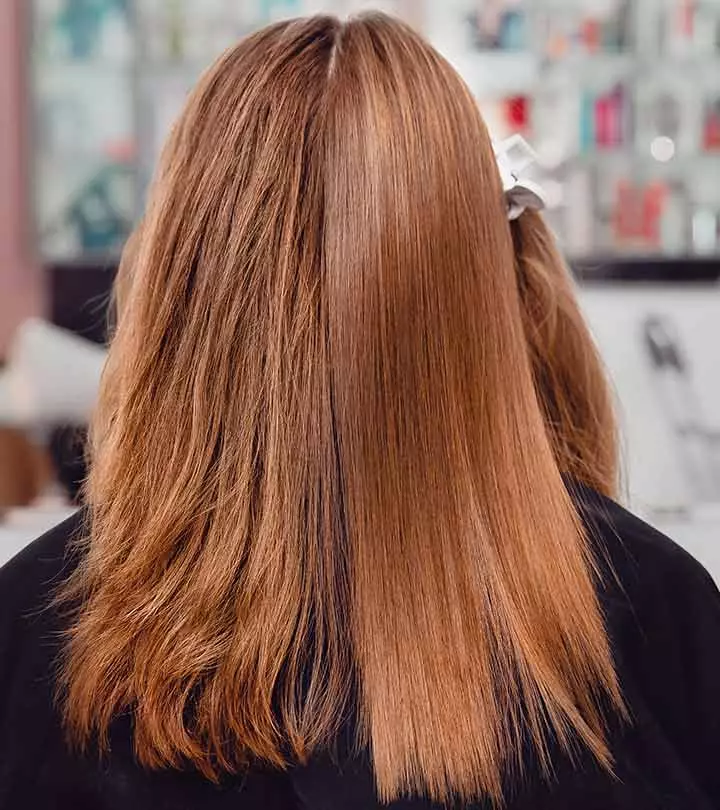

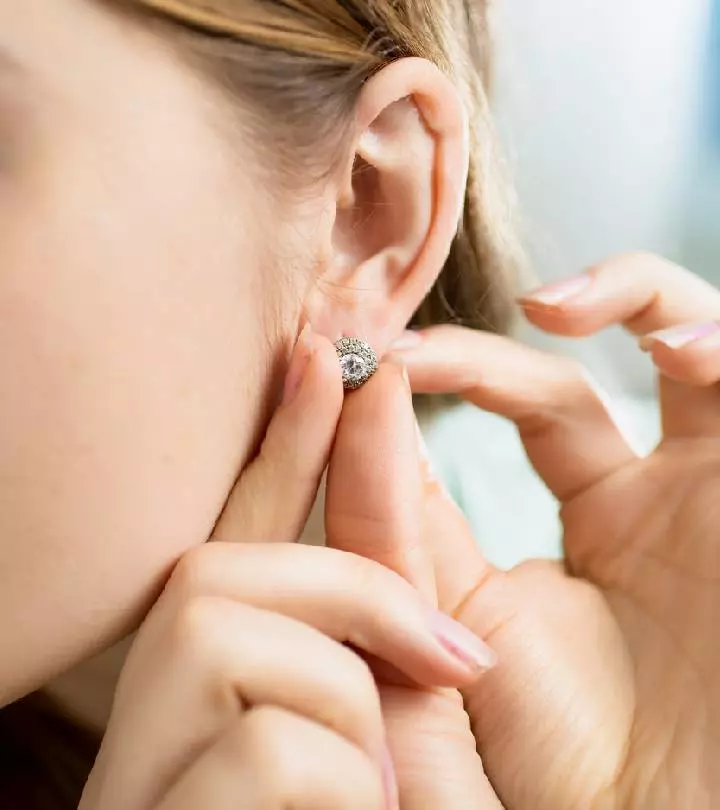
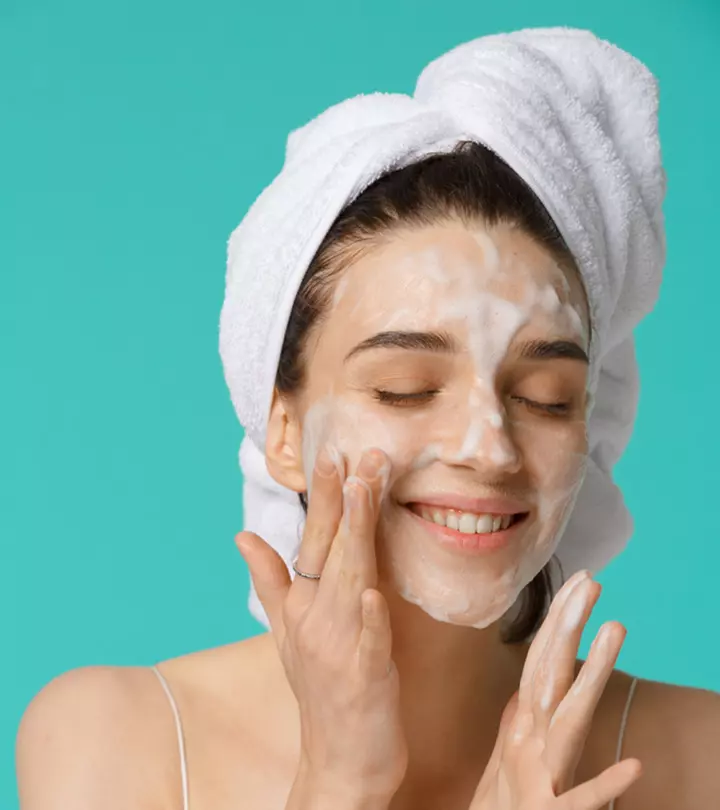
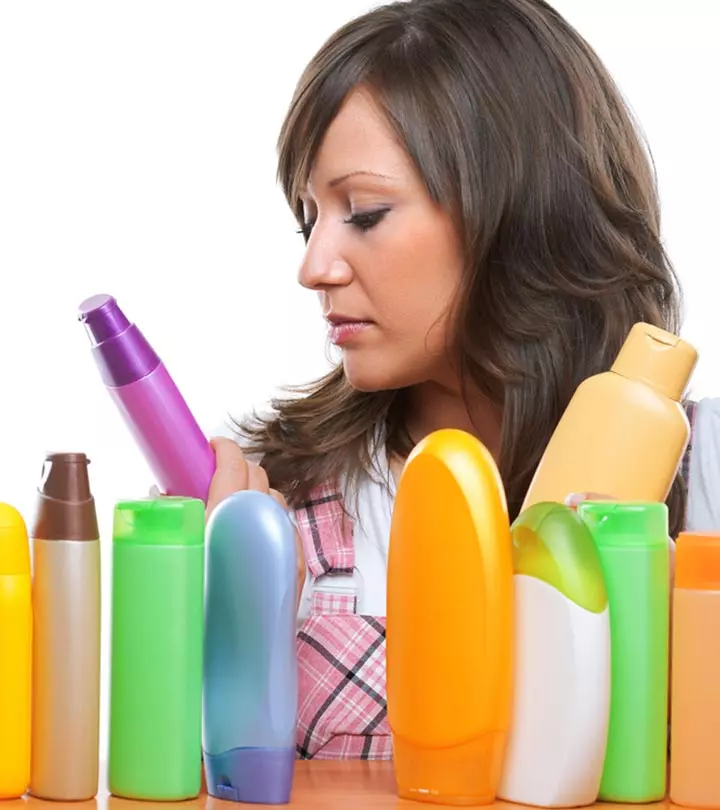

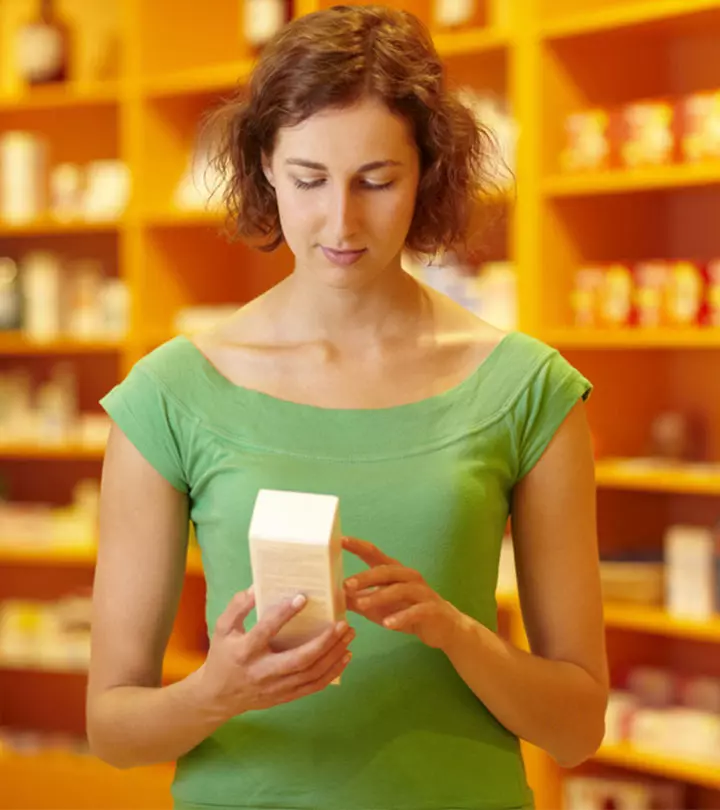
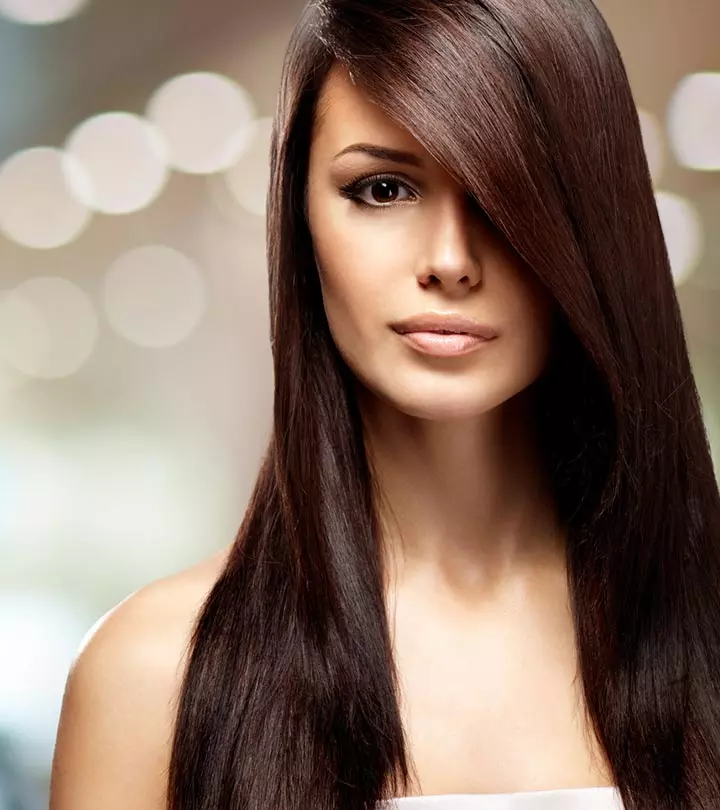
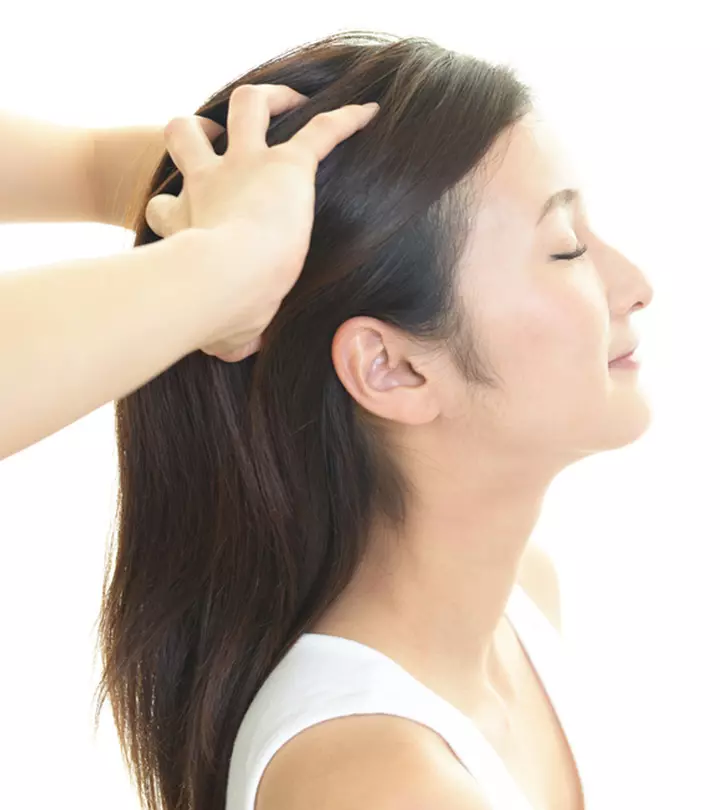

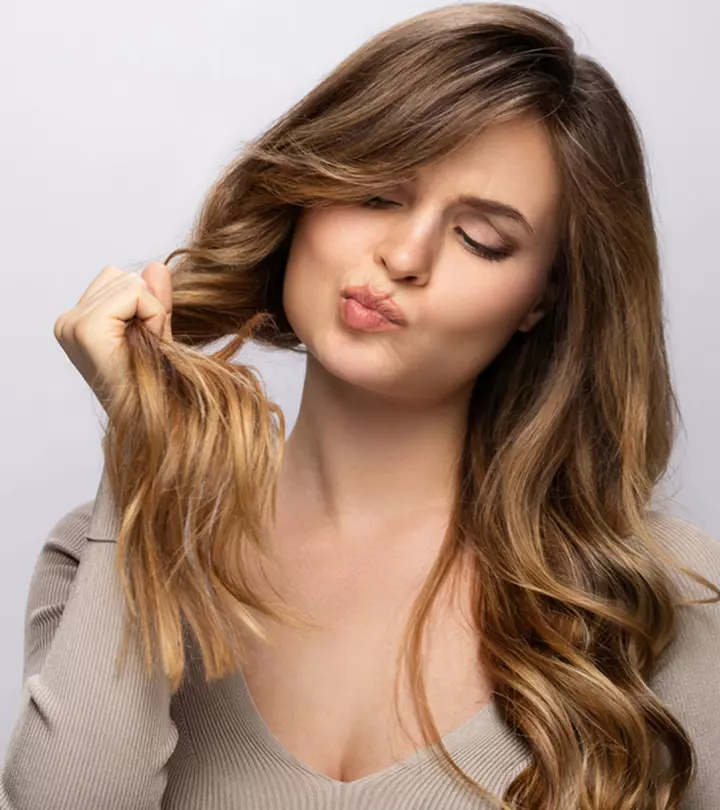

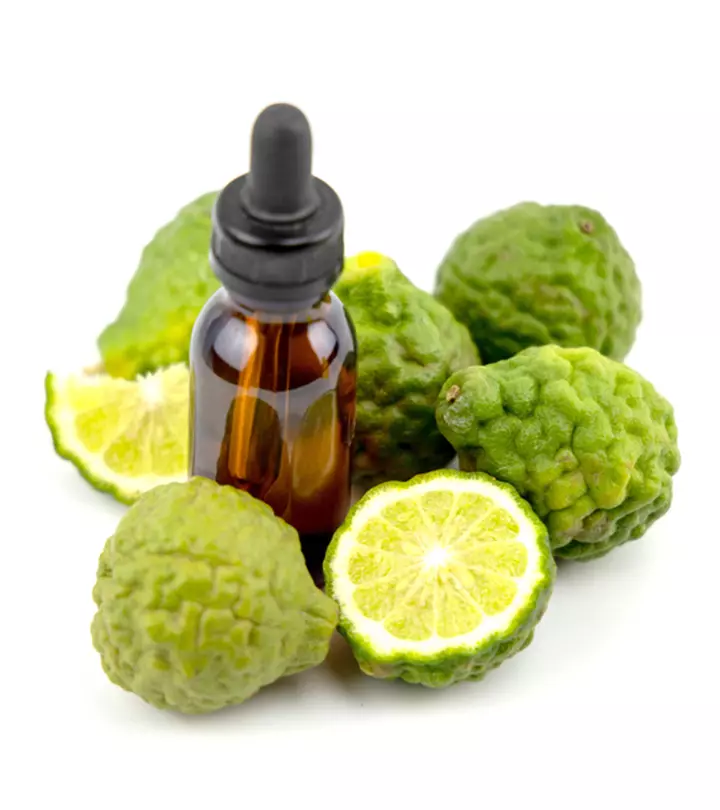

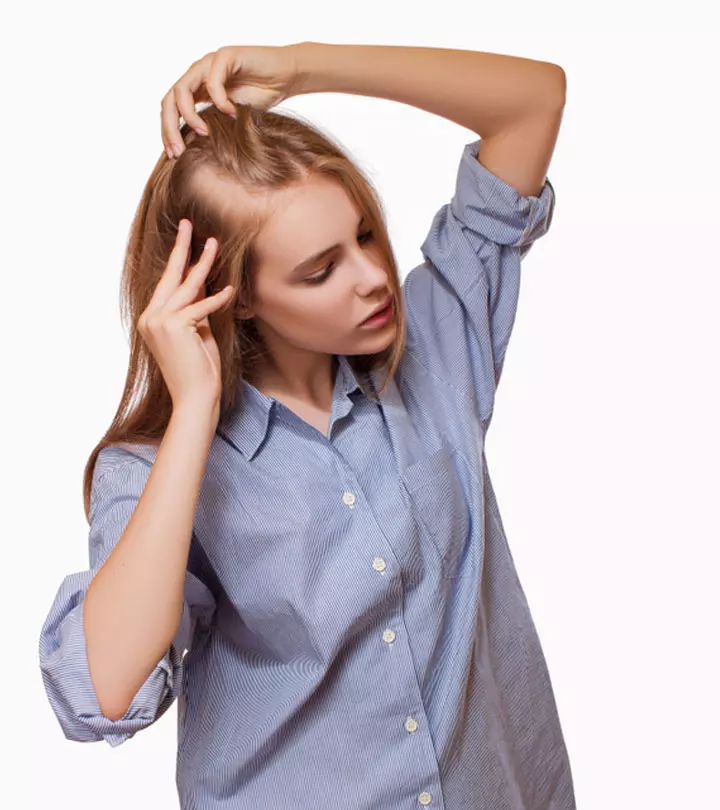

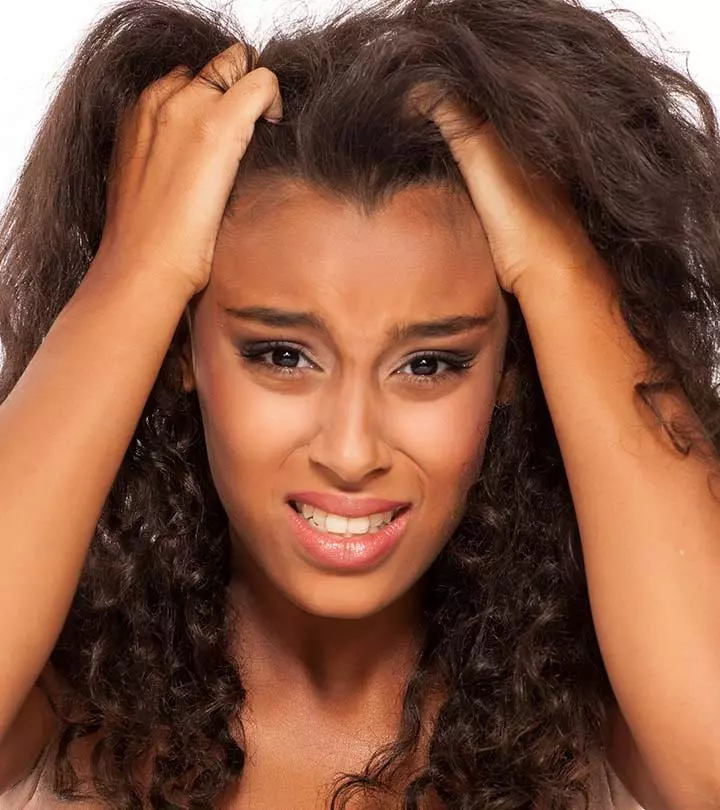
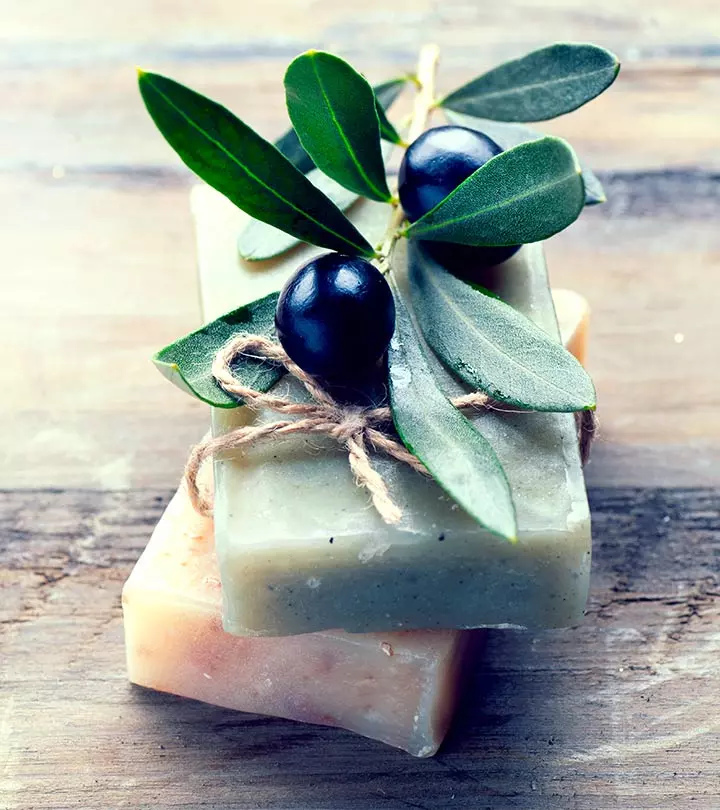



Community Experiences
Join the conversation and become a part of our empowering community! Share your stories, experiences, and insights to connect with other beauty, lifestyle, and health enthusiasts.